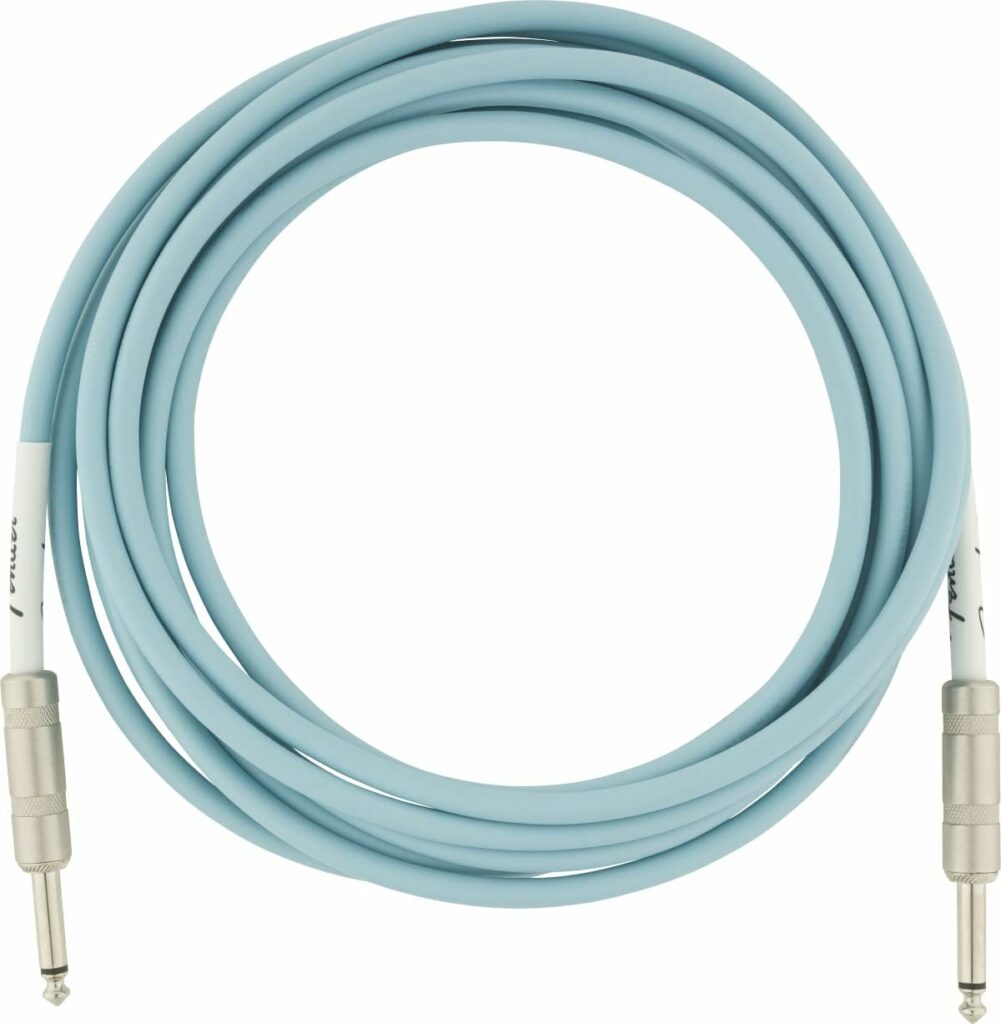Guitar cables are the unsung heroes of your signal chain. They carry your sound from guitar to amp, influence your tone, and—if chosen poorly—can introduce noise, signal loss, or even fail mid-performance. With so many brands claiming to offer “the best,” how do you decide which company truly delivers?
In this guide, we’ll break down the top guitar cable manufacturers, their strengths, and what makes them stand out. Whether you’re a bedroom player, gigging musician, or tone-chasing studio rat, you’ll learn how to choose the right cable for your needs—and why “the best” depends on your priorities.
Why Your Guitar Cable Choice Matters
Before diving into brands, let’s revisit why cables are critical:
- Tone Preservation: High-quality cables minimize signal loss and maintain high-frequency clarity.
- Noise Reduction: Premium shielding blocks interference from lights, phones, and other electronics.
- Durability: A rugged cable survives stage abuse, tight pedalboards, and years of use.
- Capacitance: Lower capacitance (measured in picofarads per foot) = brighter tone. Higher capacitance rolls off highs.
The “best” cable balances these factors to suit your playing style, rig, and budget.
Top 8 Guitar Cable Companies
1. Mogami
- Best For: Studio pros and audiophiles.
- Why They Stand Out: Mogami’s Neglex Quad and Gold Studio cables are studio staples. Their oxygen-free copper (OFC) conductors and dual-layer shielding deliver pristine signal transfer with near-zero noise.
- Signature Feature: Ultra-low capacitance (e.g., 65pF/ft for Neglex 2524).
- Price: $$$ (Premium).
- Popular Models: Mogami Gold Studio, Neglex 2524.
2. Evidence Audio
- Best For: Tone purists and pedalboard enthusiasts.
- Why They Stand Out: Evidence’s Monorail and SIS cables use solid-core conductors (not stranded) for enhanced clarity and sustain. Their “SIS” tech reduces dielectric absorption, preserving transient response.
- Signature Feature: Customizable solderless options.
- Price: $$$ (Premium).
- Popular Models: Monorail SIS, Forte.
3. Van Damme
- Best For: Live performers needing rugged reliability.
- Why They Stand Out: Van Damme’s Blue Series cables are road-tested for durability. The high-density shielding and Neutrik connectors handle rough touring while maintaining low capacitance.
- Signature Feature: Military-grade strain relief.
- Price: $$ (Mid-tier).
- Popular Models: Blue Series, Classic XKE.
4. George L’s
- Best For: Pedalboard customization.
- Why They Stand Out: George L’s solderless cables let you cut custom lengths in seconds. Their ultra-low capacitance (22pF/ft) makes them ideal for preserving high-end in effects-heavy chains.
- Signature Feature: No-solder, tool-free assembly.
- Price: $$ (Mid-tier).
- Popular Models: George L’s .155, .225.
5. Pete Cornish
- Best For: Gilmour-esque perfectionists.
- Why They Stand Out: Handmade in the UK, these cables are used by legends like David Gilmour and Brian May. Pete Cornish cables feature custom-tuned capacitance and aerospace-grade shielding.
- Signature Feature: Bespoke builds for touring pros.
- Price: $$$$ (Luxury).
- Popular Models: CC-1, Custom Pedalboard Cables.
6. Fender
- Best For: Budget-conscious players.
- Why They Stand Out: Fender’s Performance Series cables offer decent shielding and flexibility at an affordable price. While not studio-grade, they’re reliable for practice and small gigs.
- Signature Feature: Lifetime warranty on premium lines.
- Price: $ (Budget).
- Popular Models: Performance Series, Deluxe Series.
7. Ernie Ball
- Best For: Balanced performance and value.
- Why They Stand Out: Ernie Ball’s Flat Ribbon cables are slim, tangle-free, and use 24k gold-plated connectors. The shielding is robust for the price, making them great for gigging.
- Signature Feature: Space-saving flat design.
- Price: $ (Budget to mid-tier).
- Popular Models: Flat Ribbon, Classic.
8. Planet Waves
- Best For: Eco-conscious players.
- Why They Stand Out: Now under the D’Addario brand, Planet Waves cables feature recycled materials and a “Circuit Breaker” mute switch. Their American Stage series offers reliable performance with a green ethos.
- Signature Feature: Eco-friendly construction.
- Price: $ (Budget).
- Popular Models: American Stage, Custom Pro.
How to Choose: Key Factors Compared
| Brand | Best For | Capacitance | Durability | Price |
|---|---|---|---|---|
| Mogami | Studio recording | Ultra-low | High | $$$ |
| Evidence Audio | Pedalboard clarity | Ultra-low | Moderate | $$$ |
| Van Damme | Live performance | Low | Extreme | $$ |
| George L’s | Custom pedalboards | Ultra-low | Moderate | $$ |
| Pete Cornish | Touring pros | Custom | Extreme | $$$$ |
| Fender | Budget practice | Moderate | Moderate | $ |
| Ernie Ball | Value for money | Moderate | High | $ |
| Planet Waves | Eco-friendly gigging | Moderate | Moderate | $ |
FAQs About Guitar Cable Brands
Q: Are expensive cables worth it?
A: If you’re recording or using high-end gear, yes. Premium cables (e.g., Mogami, Evidence Audio) preserve tone better. For casual playing, mid-tier options suffice.
Q: Does cable length affect tone?
A: Yes. Longer cables = higher capacitance = darker tone. Keep runs under 20ft unless using a buffer.
Q: Can I mix brands in my pedalboard?
A: Absolutely! Many players combine George L’s (for low capacitance) with Mogami (for long runs).
Q: Do connectors matter?
A: Critical. Neutrik and Switchcraft connectors (gold-plated) offer the best signal transfer and durability.
The Verdict: What’s the “Best” Guitar Cable Company?
- Studio Recording: Mogami or Evidence Audio for unmatched clarity.
- Live Gigs: Van Damme for durability, Ernie Ball for value.
- Pedalboards: George L’s (custom) or Evidence Audio (tone-focused).
- Budget Practice: Fender or Planet Waves.
- Luxury/Touring: Pete Cornish (if money’s no object).
No brand is universally “best”—it depends on your needs. Test a few to hear how they interact with your gear.
Pro Tips for Maximizing Cable Performance
- Use a Buffer: Compensate for tone loss in long cable runs.
- Coil Properly: Avoid kinks to extend cable life.
- Label Cables: Simplify troubleshooting on complex boards.

